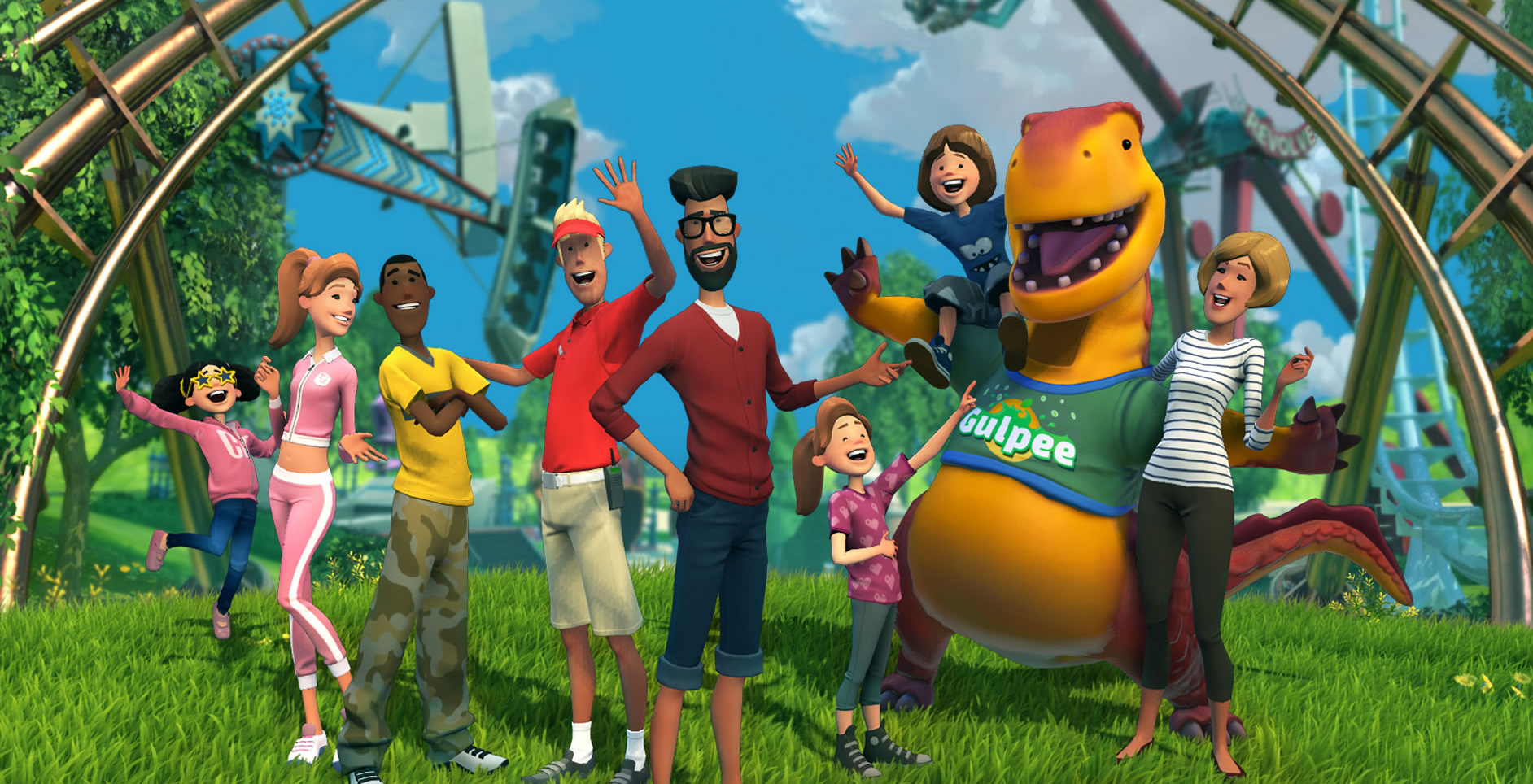For fans of the theme park simulation genre, it’s been painfully apparent that a few years the genre found itself in a state of hibernation. With the Rollercoaster Tycoon franchise on hiatus and no competitors players relied on the active userbase that the older games brought with them, but this month the genre is in for a huge revival. Coming out of its Alpha and releasing alongside Atari’s Rollercoaster Tycoon World is the spiritual successor to the franchise: Planet Coaster.
Developed by Rollercoaster Tycoon 3 and Elite Dangerous developer Frontier Developments, Planet Coaster is arguably aimed at a wide audience, ranging from casual players to advanced builders, who have gained quite the following in the communities of the genre in the past decade. Creating more open-ended and deep design and management mechanics, there’s a lot to explore under the hood of Planet Coaster. Having played around with all of the Alpha and Beta phases, and ultimately with the game’s full release, I’ve got a lot to say about the game, so I’ll try to cover most of it.

The core of Planet Coaster is exactly as you’d expect: build a park to your liking, attract visitors and gain a profit. Whether it’s in the game’s sandbox mode or during the game’s campaign, the penultimate goal remains the same. But what does it take to gain success?
What’ll get you started is pretty much what you’d expect if you’re coming back from either Rollercoaster Tycoon 2 or 3. You build coasters, rides and themes, but in Planet Coaster everything is just a bit more in-depth, even more than you’d probably expect.
This all starts with the game’s coaster building, which has moved from the genre’s traditional grid-based structuring to a more freeform style of design. With an already solid selection of coaster variations, there’s quite a bit of creative freedom to go through. The best thing about it, however, is the fact that it’s incredibly easy to get into. Within moments you can create the most basic and iconic of coasters, and through repetition and pure experimentation, there’s no doubt any player can get a hang of this great system. Creating a smooth experience can be a little tricky at times, though, despite the game’s track smoothing features.

But whilst coasters are pretty much what you’d expect, building scenery and structures is something that’s a lot more detailed when it comes to mechanics than you’d expect. The game’s “piece-by-piece” building system allows players to create pretty much whatever they can think of. For example, whilst the game has a few set themes, the combinations of elements from different themes are so versatile that with a little practice, there is very little you can’t accomplish when constructing your park in Planet Coaster. It’s easy to get basic structures going, though more expansive and detailed buildings and structures may take a lot of practice and trial-and-error, which pretty much sums up my experience of the last few months. It’s essentially comparable to learning to draw and/or use a piece of software, where you just keep playing around to see what works and what doesn’t.
Don’t want to build everything yourself, however? Well, that’s where the game’s blueprint system comes in. By selecting structures and coasters, you can save and upload them to the Steam Workshop. Don’t get me wrong, building in Planet Coaster is inherently fun, but sometimes it’s nice to just plop some cool stuff I found in the workshop around in the park.

But building thrills isn’t the only thing you need to do to get your park to success. Building themed sections, maintaining your staff, making sure your rides are working efficiently and keeping everything up to date is your day-to-day job. But maintaining my staff and working on efficiency you say? Isn’t that insanely dull? Not at all, I must say. Especially to fans of the genre, the game’s management features are pretty much the icing on the cake when it comes to the operation of your park. It’s a lot to get used to at the start, even though most of it is pretty simple at this point, but to me, it never felt like an interference and more like an extra layer of depth to even out the experience. Admittedly, sometimes keeping an eye on your staff can be distracting, but it’s a layer that you eventually get used to. An argument that could be made here is that casual players in sandbox mode should have the option to shut these features off. I’m more of an avid player myself, but at times it’s easy to see why those small things can be more of an annoyance for players who simply want to build.
An inherent problem with the game’s management structure is the fact that it’s not quite there yet. Handling your finances and employees is one thing, but there’s still a lot to do in retrospect. There’s a lot to do that adds a lot to the formula, but not quite enough to make it the management experience that the developers have been promoting. That being said, Planet Coaster is looking to be a game that’ll evolve quite a bit over its lifetime, and knowing Frontier I personally have little doubt that they’ll get there eventually.
CONCLUSION
Planet Coaster isn’t perfect yet, but what’s there is just incredibly fun. There’s a lot of learning to do along the way, but with all of the customisation and freedom, Frontier Developments has delivered one of the best possible successors to the Rollercoaster Tycoon franchise. However, it’s an experience that will undoubtedly grow stronger as the game develops over its lifetime, which is something the developer is arguably quite skilled at. Ready to get back into the theme park-building game? Here’s your perfect chance.



